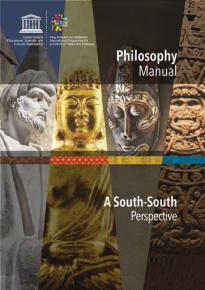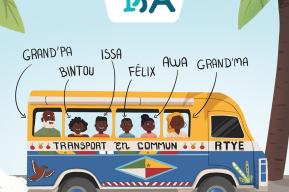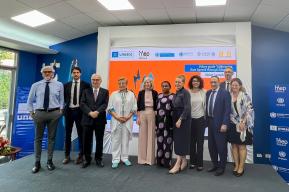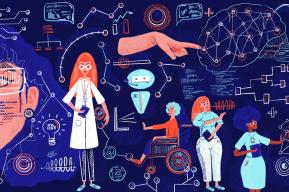News
UIL marks International Literacy Day 2022 with two new publications promoting tech-supported literacy learning

Literacy is central to a person’s lifelong learning journey. It is also fundamental to the empowerment of refugees, migrants and internally displaced persons (IDPs). Literacy contributes to resilience building, improved self-confidence and self-esteem, greater prospects for employment, better health outcomes, a stronger sense of agency, and motivation to learn and to socially integrate.
To mark International Literacy Day on Thursday, 8 September 2022, two new publications on the role of information and communication technologies (ICTs) in facilitating the delivery of education and literacy programmes to meet the complex needs of refugees, migrants and IDPs were launched by the UNESCO Institute for Lifelong Learning (UIL) during the Global Alliance for Literacy (GAL) annual meeting in Côte d’Ivoire.
Better access to digital devices, improved internet connectivity and the increasing availability of online learning platforms open up new opportunities for education and literacy programmes. We need to fully exploit the potential of technologies to improve literacy learning and enhance the lives of people on the move.
From radio to artificial intelligence: Review of innovative technology in literacy and education for refugees, migrants and internally displaced persons
The publication From radio to artificial intelligence: Review of innovative technology in literacy and education for refugees, migrants and internally displaced persons presents a review of relevant literature and an analysis of 25 programmes from across the world that have used innovative ICTs in literacy and education for refugees, migrants and IDPs. It identifies a lack of data on the state of literacy for youth and adults globally, and limited literature on the effectiveness of ICTs in supporting literacy and education programmes for refugees, migrants and IDPs. The 25 analysed programmes reveal that ICTs play an important role in overcoming barriers to learning for these target groups, however. The strategies followed by these innovative ICT-supported programmes are elaborated across six thematic areas: (1) access and inclusion, (2) capacity-building of teachers and educators, (3) relevant content and innovative andragogy, (4) monitoring and evaluation, (5) strategic partnerships and (6) recognition, validation and accreditation of learning.
Policy-makers, programme providers, international organizations, civil society, and, indeed, anyone with an interest in meeting the obligation to provide inclusive quality education for the most vulnerable will benefit from the rich analysis and diverse examples included in the publication.
Leveraging innovative technology in literacy and education programmes for refugees, migrants and internally displaced persons
The publication Leveraging innovative technology in literacy and education programmes for refugees, migrants and internally displaced persons brings together a selection of 21 case studies showcasing how ICTs can be integrated both innovatively and effectively into literacy and education programmes for refugees, migrants and IDPs. The case studies in this compilation demonstrate the potential of technology to support learners’ acquisition of literacy skills through arts-based learning, integrated literacy programmes, entrepreneurship training or in combination with tertiary education opportunities. They highlight the multitude of stakeholders that have come together across sectors to shape innovative responses that can make a real difference to learners’ lives. At the same time, the compilation shows the various modalities through which technology can be harnessed to deliver effective literacy and educational opportunities in diverse and challenging environments while recognizing and remaining sensitive to the needs of learners, be they refugees, IDPs or migrants.
Both publications were made possible with the financial support of the Swedish International Development Cooperation Agency (SIDA).
Further information
VHS Lernportal (Germany) - Providing refugees and migrants with a chance to learn German

Kepler Kiziba (Rwanda) - Offering learners the opportunity to earn a US-accredited degree from the Southern New Hampshire University (SNHU) at the Kiziba refugee camp

Norwegian Council for Refugees Youth Programme (Jordan) - Providing access to structured and certified learning opportunities for youth in refugee camps








